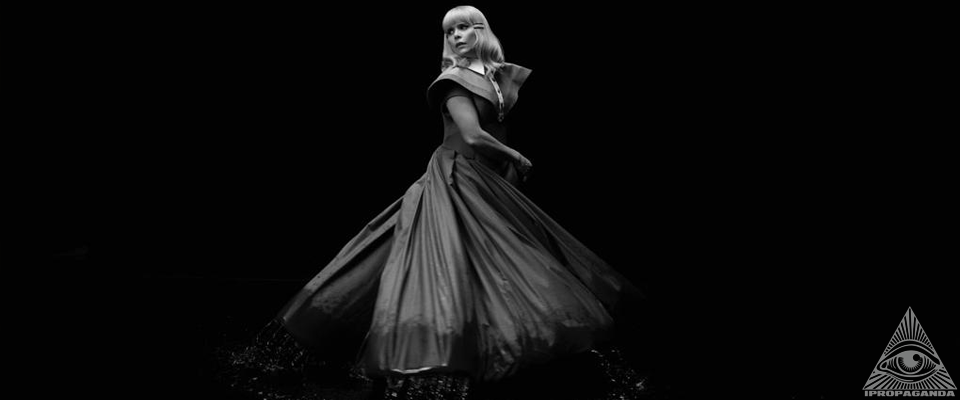
The transition from 2020 to 2021 was in dire need of—if nothing else—a healthy dose of uplift. In the middle of November, British pop mainstay Paloma Faith did her bit by securing all the classic joy of a hopeful and bright new year with her fifth LP Infinite Things. Across thirteen tracks, the album combines shiny ‘80s production with familiar contemporary rhythms and a passionate current that feels quintessentially relevant. The result is a sort of “Cyndi-Lauper-meets-Carly-Rae-Jepsen” sensibility. This wonderful selection of tracks are nothing short of bouncy, buoyant, and beautiful; seeming at once to acknowledge gravity and to defy it. Even its creation bears the stamp of the times
Faith began recording in early 2020 but was soon forced to reschedule by the sweeping effects of the global COVID-19 crisis. Still more extreme, according to a representative, was that the lockdown prompted her to scrap most of her previously written material and start over. It’s likely we’ll never know the oeuvre she envisioned at the outset but luckily, the product became a multifaceted treatise on the difficulties of collaborating, commiserating, cohabiting, and—perhaps most daunting of all—coping. Infinite Things holds up a surprisingly accurate mirror allowing us to gaze upon our recent past, detailing the trajectory of the collective quarantine experience —even if the trajectory of the pandemic itself has hardly completed its arc.
We accompany the artist/narrator on a sonic and textual journey, with Faith granting us a round-trip ticket between sublime and mundane. The introductory sensation, led by the tracks “Supernatural” and “Monster,” invoke the reassurance and energy we sought during those first tremulous weeks alone (or alone together) in our living spaces. Respectively, the lush synthesizer and disco-inspired beats of the aforementioned tracks invite us to an isolation dance party. Faith’s lyricism paints alternating pictures of togetherness and separateness, dreamy idealism and cold realism. Heck, the first sentence emoted on the first track says “When you’re feeling lonely and you can’t go on…” At some point, in some fashion, have we not all subscribed to that feeling over the past eleven months?
That propulsion is sustained over the following two tracks “Gold” and “Falling Down.” The former is a hands-in-the-air anthem with a chant-like chorus that begs an arena-wide sing-along (if you can imagine such a gathering anymore). There is no doubt about its potential as a crowd favorite if/when Faith takes it on the road. The latter track signals a return to the dance-floor pulse of “Monster.” With a beat heavy on the two and four, this irresistible quality extends into the rhythm of a lyric which fittingly describes a romance that puts the “toxic” in “intoxicating.” Faith has proven herself so proficient at making you believe she is singing directly to you and only to you. It occasionally takes a lyrical moment like this to remind you of her equivalent strength at relationship portraiture.
Indeed, personal relationships step front and center for the album’s middle portion, albeit couched in a significant musical shift. We’re confronted with several ballads so uniquely influential individually, but united in determined optimism. Faith guides us smoothly into this section with a mid-tempo number that is also the title track. As summarized by the line “If there’s a God, then I found her in my arms,” The song I “Infinite Things” works as the record’s worldview defining moment. It makes no promises about what’s beyond by expressing a deep gratitude for what’s here, yet there still remains a sense of the collective. In an address to a single person, Faith diagnoses “all the joy [and] chaos” of an environment in which an entire population has been cut off from its usual sources of solace and release. When she asserts, “I see in your eyes those infinite things,” we have a share in those “things.”
Also, there is a bitterness soon to reveal itself. “If This is Goodbye,” “Better Than This,” and slightly later, “If Loving You Was Easy” are largely minor-key meditations on the yearning that is bound up in our connections and the heartbreak we can suffer when those connections and weaknesses are exposed. Acoustic instruments, particularly the piano, play a more prominent role on these tracks, reflecting the achingly human nature of the subject matter. Nonetheless, a spirit of resilience permeates it. The ninth track’s beleaguered narrator concludes “No, I don’t think I’d want you / if loving you was easy.” And even these shadows are dispelled partway through by the anthemic “Me Time,” whose chorus lifts our mood as it rises step by tonal step, whose lyric offers the practice of getting in touch with oneself as an alternative to the despair of lockdown.
The last batch of songs somehow encompasses the average listener’s state of mind even more fully by combining potent elements of the preceding sections; namely, topical melancholy and musical exuberance. A thread of transience and impermanence, if not outright doom, runs through these tracks along with an emotional dedication that stands solid in the face of it. “I’m your ride or die, I’ll hold your hand,” she promises on “Beautiful & Damned,” using the titular phrase to refer to her partner individually, as well as to the pair of them. Her pledge in “I’d Die for You” sounds more like the cautious extending of a hand in an uncertain moment (“Maybe I could be that stranger for you / Maybe I could be that person for you…’cause nothing is worth all this grief”) while the dance track beneath opens warmly like a loving embrace.
The final two tracks contain some of the album’s starkest, hardest-hitting lyrics, especially in an age where anxiety reaches both inward to the home and outward to aspects of life beyond public health. “Can’t handle your complacency,” she wails on the bridge of “Living with a Stranger.” And it doesn’t take much delving to interpret “this could be our last night on earth” as more than mere speculation. Here is language that functions doubly as social diagnosis (“We got so much love / We got so much doubt”) and personal stakes (“Can we not let go? / Can we work this out?”). The spacious arrangements, peppered with artificial instrumentation, work all the harder to keep us aloft as they balance the existential weight of the text.
Even with a host of songwriters credited alongside her, Faith sounds as if she couldn’t be doing any less than speaking from her heart. Most of the tracks fall into a three- to five-minute timeframe, allowing her to explore wide and exciting melodic ranges and allowing us to luxuriate in the layering and craft of each musical idea. There are hooks to keep us humming for days but the lyrics will likely demonstrate the most staying power in the end. The oft-repeated philosophy of “Supernatural” goes “If we got the love, we got each other / We’ll survive.” We can only hope that prophecy comes true.

